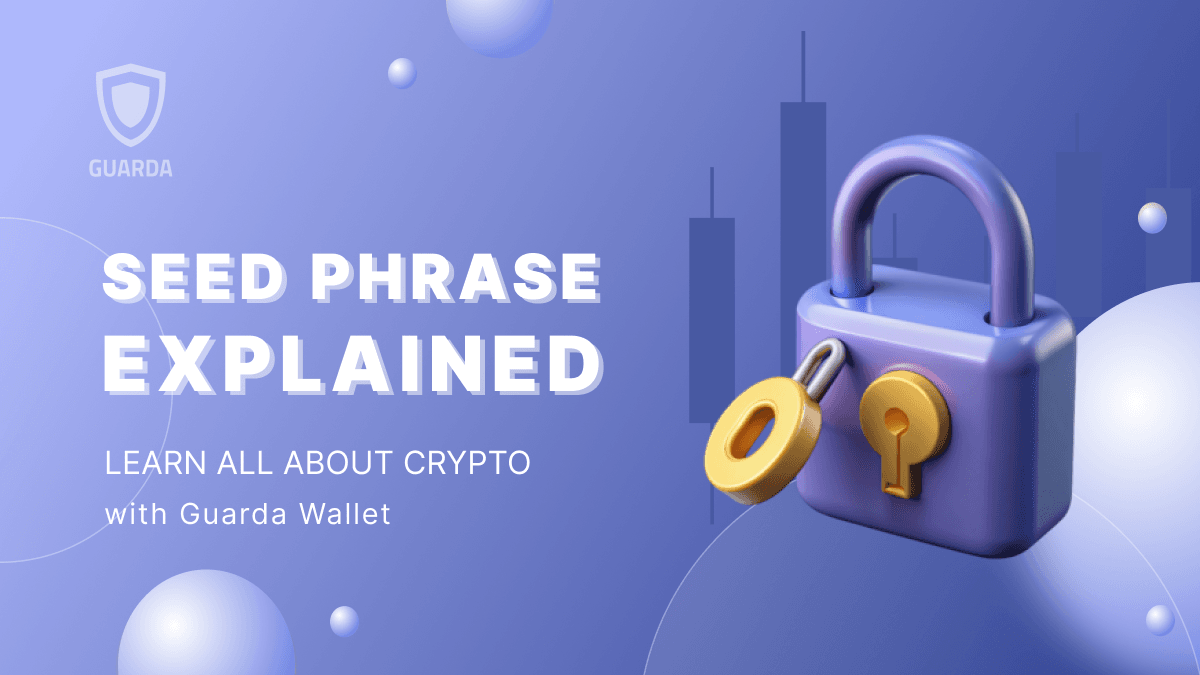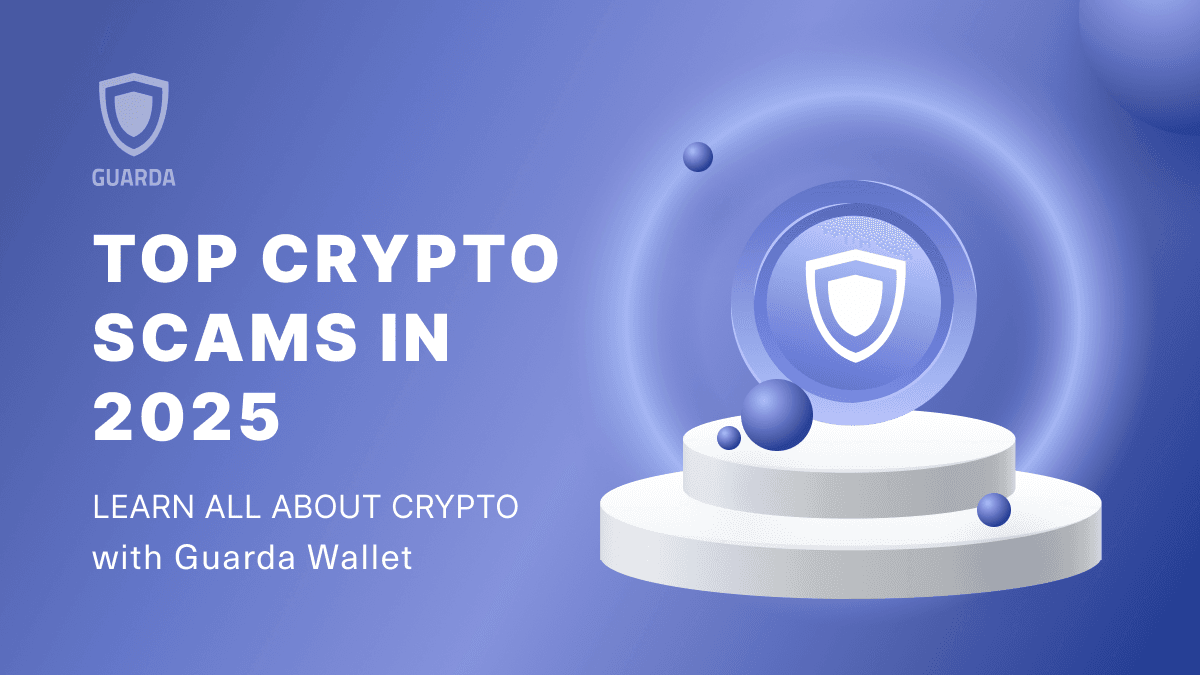What should I do first to avoid becoming a victim of bitcoin/cryptocurrency fraud?
As we will see in the following paragraphs, some of the cryptocurrency scams are adaptations of classic methods with fiat, so to avoid falling victim to them, we should take these basic recommendations into consideration:
- If you’re new to the world of cryptocurrency, doing research and learning about it is the fundamental thing. The more you know about the way cryptocurrencies work, the less likely you are to fall for a scam.
- Beware of ads that offer fast earnings in a short period of time or high profitability with a small amount of job done. These are likely to be scams.
- Beware of news about very profitable cryptocurrency projects, they can be false, so check your sources until you find the original ones and make sure it is legitimate.
- Only use trusted people or companies for cryptocurrency transactions. Find out about them, research, and get opinions to make sure they are legitimate.
What are the methods of fraud and how not to fall victim?
1. Malware soft
Many scammers often promote scam apps. They use various promotion methods to get you to install the file on your computer or phone and thus steal your data. Many platforms are rather poorly protected against penetrating file root structures, so they use basic exploits to steal your data. This download is a trap to steal the private keys on our computer or mobile phone.
How to protect yourself? Basic rule: never download software that you get through Google ads or social media. Don’t click on such ads or URLs that come in private messages. Never enter private keys, passwords, or 12-word recovery phrases on a website that has been reached in this way.
2. Beware of fake wallets
It’s not just exchanges that can be fake: wallets too. In this case, it’s also not enough to remain among the most popular wallets in the App Store or Google Play, because the version you download (especially the mobile versions) may be a scam.
How to protect yourself? Make sure to double-check App Store, Google Play, App Gallery links on the official Guarda Wallet website.
3. Cloned sites
This is the most common type. Here, scammers prepare a website identical to the real one, which could be an exchange or online wallet site, and distribute it by various means, including email, chat rooms, and even Google ads, which may be mistaken for the original page in search
How to protect yourself? The most effective way to avoid this scam is to carefully examine the URL of every page you have funds on before entering any credentials. In a phishing scam, the URL is always changed to a character, as the domain (name) of the company or project is already occupied, and it is impossible for the two to be exactly the same. In that sense, once you identify the real page, you should bookmark it and log in there, rather than using the search results.
4. Fake social media communities
Very often, attackers create copies of social media accounts of well-known brands, where they pretend to be customer service specialists. The social networks will look very similar, have a large number of followers, and even generate visible activity there. Once you ask for help from the experts, they will start gradually asking for your personal details to access your account later.
How to protect yourself? Keep in mind that any kind of social networks that call themselves Guarda are officially represented only on Guarda.com; if there are no corresponding links on our website, it means that the community is fraudulent and interacting with you in order to steal your funds.
5. The persistence of scammers
Scammers can sometimes be distinguished by the occasion of coercing you into some targeted action. It is important for scammers to make a quick profit, and to block all contact with you afterward, so they will act quickly and try to get the maximum profit out of you. Remember that no customer service will ever push you to make a decision.
How do you protect yourself? Our technical support team responds only to your requests, and never puts you down for any targeted action. Your requests are carefully reviewed and analysed, so this may take some time. Remember that a scammer has neither the desire nor the ability to dig deep into your problems. They want to get your data, and will “sort out” your problems in a matter of minutes.
6. Fake support teams
Sometimes, scammers get away with creating a fake website by simply impersonating the support team of some legitimate platform, including exchanges and wallets. That way, the only thing they fake is the company logos and email address in the message they send to their victims to inform them of any perceived inconvenience and to ask for their personal information with the false purpose of helping them.
How to protect yourself? In these cases, it’s important to remember that both traditional financial companies and cryptocurrency platforms never ask for your credentials under any circumstances. Simply because they already have them.
7. Fake developer accounts
In this case, it’s also not enough to stay among the most popular wallets, as the version we download (especially the mobile versions) may be false. It is therefore important not to randomly choose a wallet from the mobile shops, but to find out which option might be best for you, based on the hardware, and the features and privacy you are aiming for.
Thus, the unofficial one-wallet app has not only managed to appear in the App Store but has also become one of the most downloaded in the shop. Furthermore, up to three versions of the alleged exchange app have been downloaded on Google some 5,500 times before being removed from the shop.
How to protect yourself? At the moment, Guarda mobile app versions are available on three platforms: App Store, Google Play, and Huawei AppGallery. Also, you may download the .apk file. Be sure to double-check the developer before installing, so you won’t install a fraudulent app.
8. Fake financial advisers
These days, the market has been flooded with a lot of informational products. And based on this, a large number of fraudsters have appeared who present themselves as specialists in various sectors of the economy. They are trying to steal not only your personal data but also your money. They use well-developed landings, social engineering and photoshop to create an illusion of their importance and success in order to gain your trust.
How to protect yourself? In these cases, it’s important to remember that both traditional financial companies and cryptocurrency platforms never ask for your credentials under any circumstances. Simply because they already have them.
Top tips to protect yourself from cybercrime
We’ve read a lot of comments from Guarda users or people who want to buy their first cryptocurrency, saying: what should I do basically to avoid losing my cryptocurrencies? So here’s a guide with tips on how to avoid being scammed, or at least avoid bitcoin scams as much as possible:
1. Good protection
While not all scams need to be software or website-related, inevitably, as a digital sector, the first tip is to have a well-protected computer. It is advisable to have an updated operating system and protect yourself with a good antivirus.
2. Gather up-to-date information
Buying a product in a shop or supermarket involves a collection of factors that influence our final decision: brand reputation, customer satisfaction, preliminary information about the characteristics and quality of the service or product in question, etc.
While working with cryptocurrency, it is advisable to do the same. What to look out for? Basically, it is important to look at the company’s data as well as the opinions of other users.
3. Accessing secure websites only
When buying cryptocurrency make sure that the connection is secure and you are accessing an HTTPS web address. That is, that it complies with security protocols. If the web page you are accessing has a security certificate, the browser will display a padlock icon next to the URL. This prevents your data from being intercepted.
4. Manage your own wallet
Above all, it is advisable to know the safest wallets for storing your cryptocurrencies. At Guarda, we ensure our users by providing the most secure non-custodial wallet. Still, never share access with other people, and always be responsible for keeping your own money. One of the basic fundamentals of security is not to grant access to your wallets to third parties. Otherwise, the funds may be stolen and not recovered.
5. Enable 2-factor authentication wherever possible
Increase the security of your passwords. If dual authentication or two-factor authentication is enabled, a second key will be required to verify your identity. This way, even if your passwords are stolen, a temporary code generated from your PC or mobile device will be requested to keep your data and money safe.
Conclusion
No one gives money to strangers just because no investment is guaranteed, and if someone insists that something works and is ‘100% -real’, it’s probably because it isn’t. Also, no business works without an initial investment, so “winning without investment” actually implies a referral system (pyramid scheme) or hidden costs later. Always ask yourself the standard questions. If something looks suspicious, do not disclose information or money until you have thoroughly investigated it.



